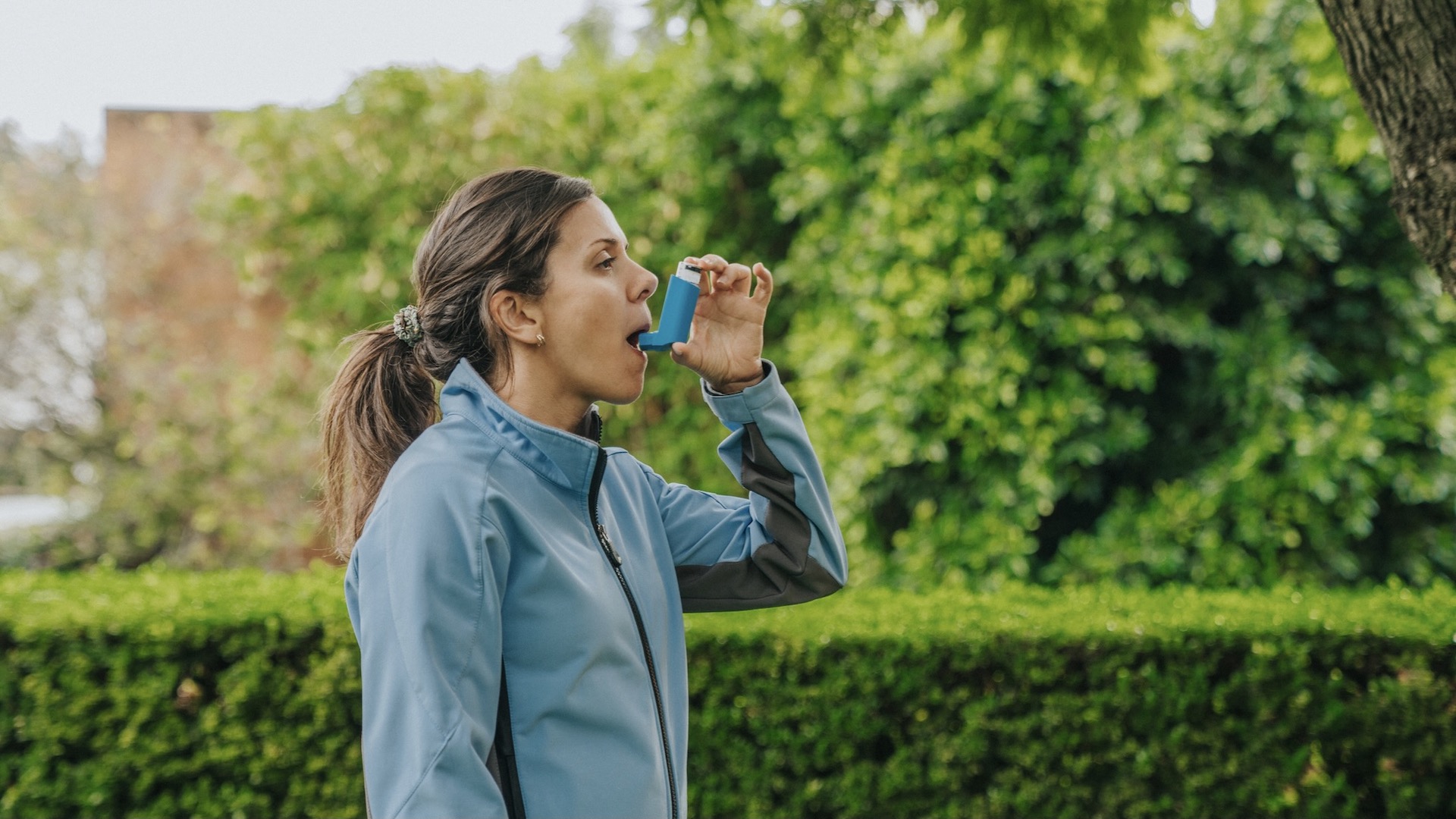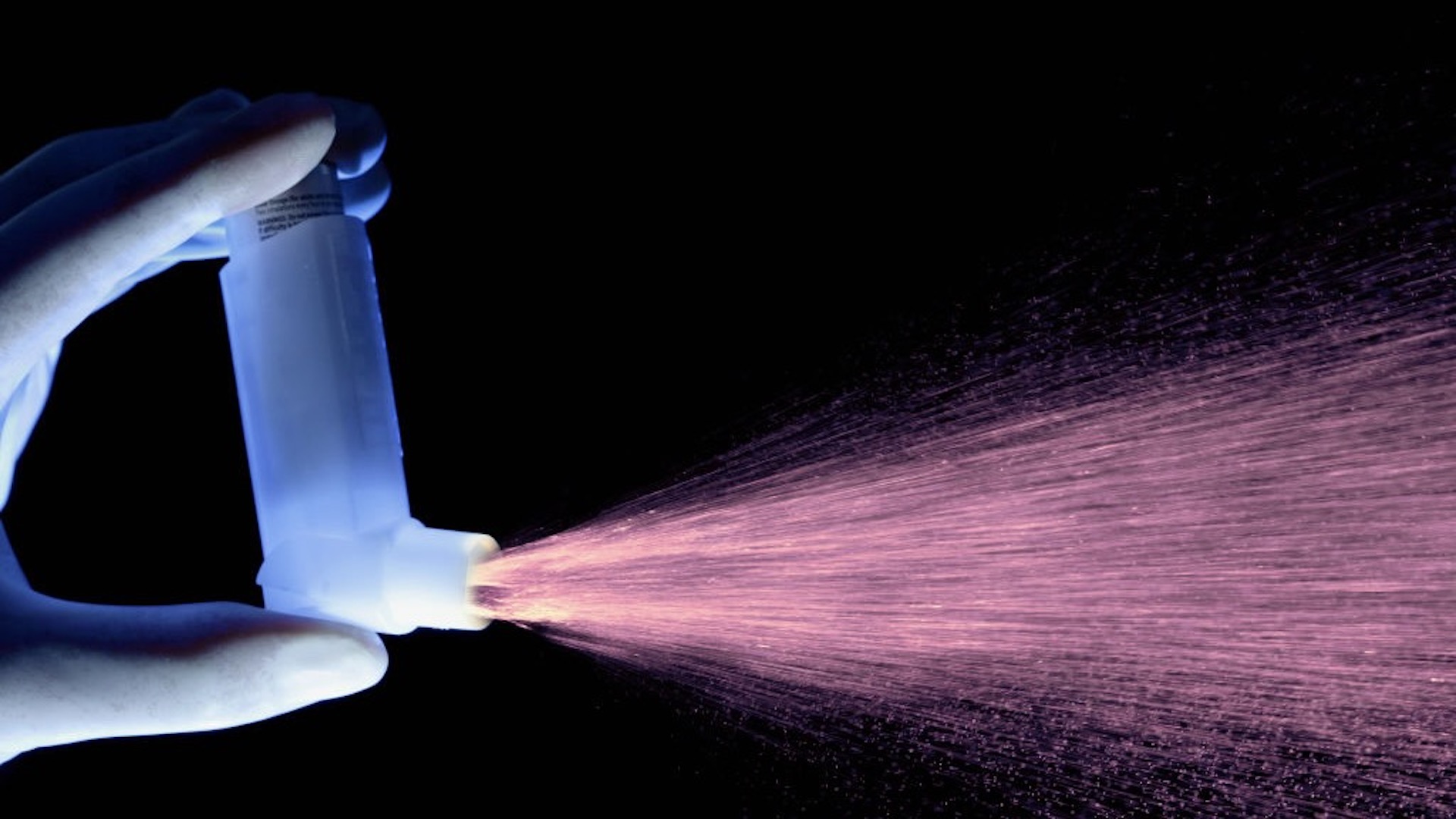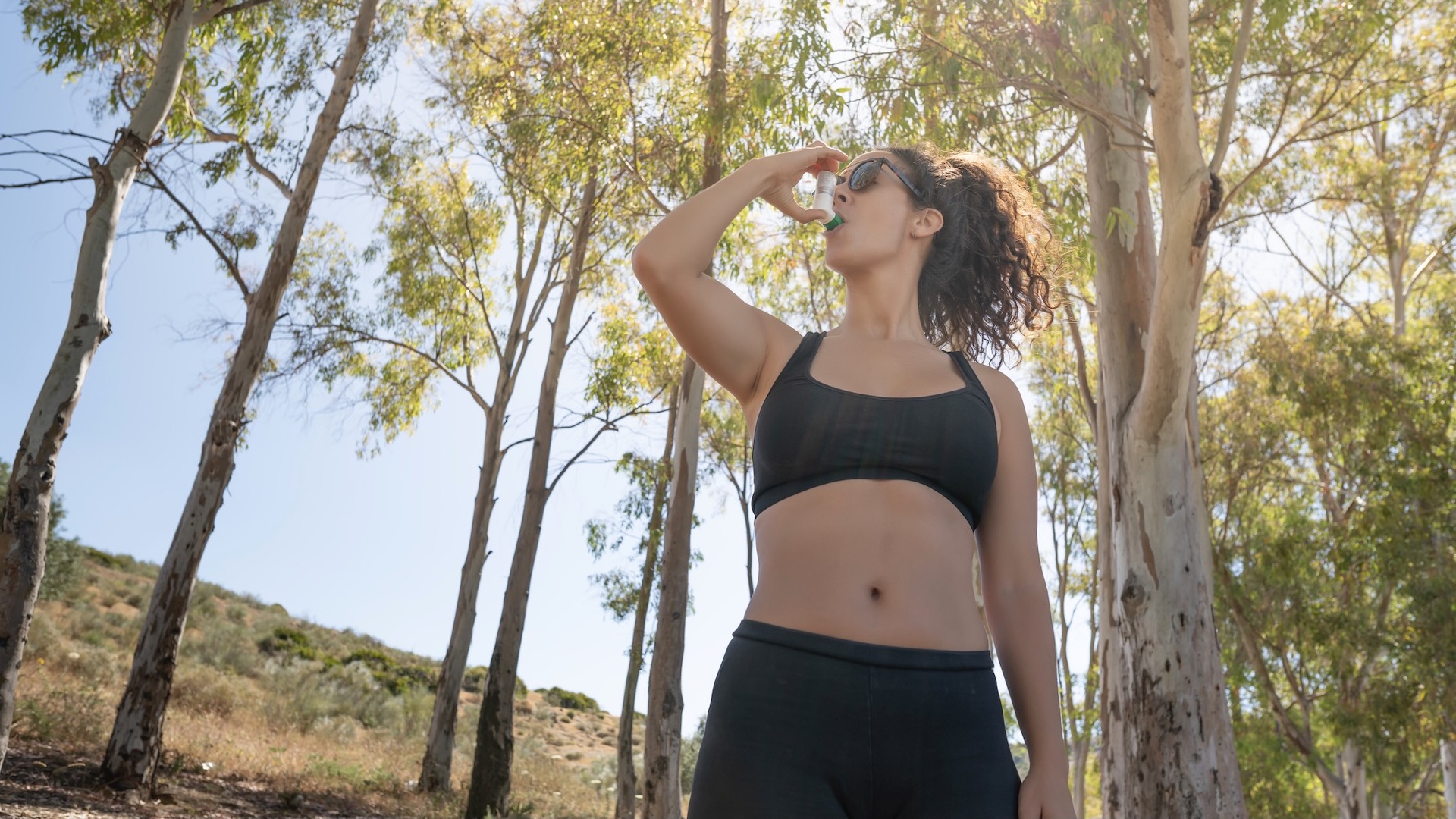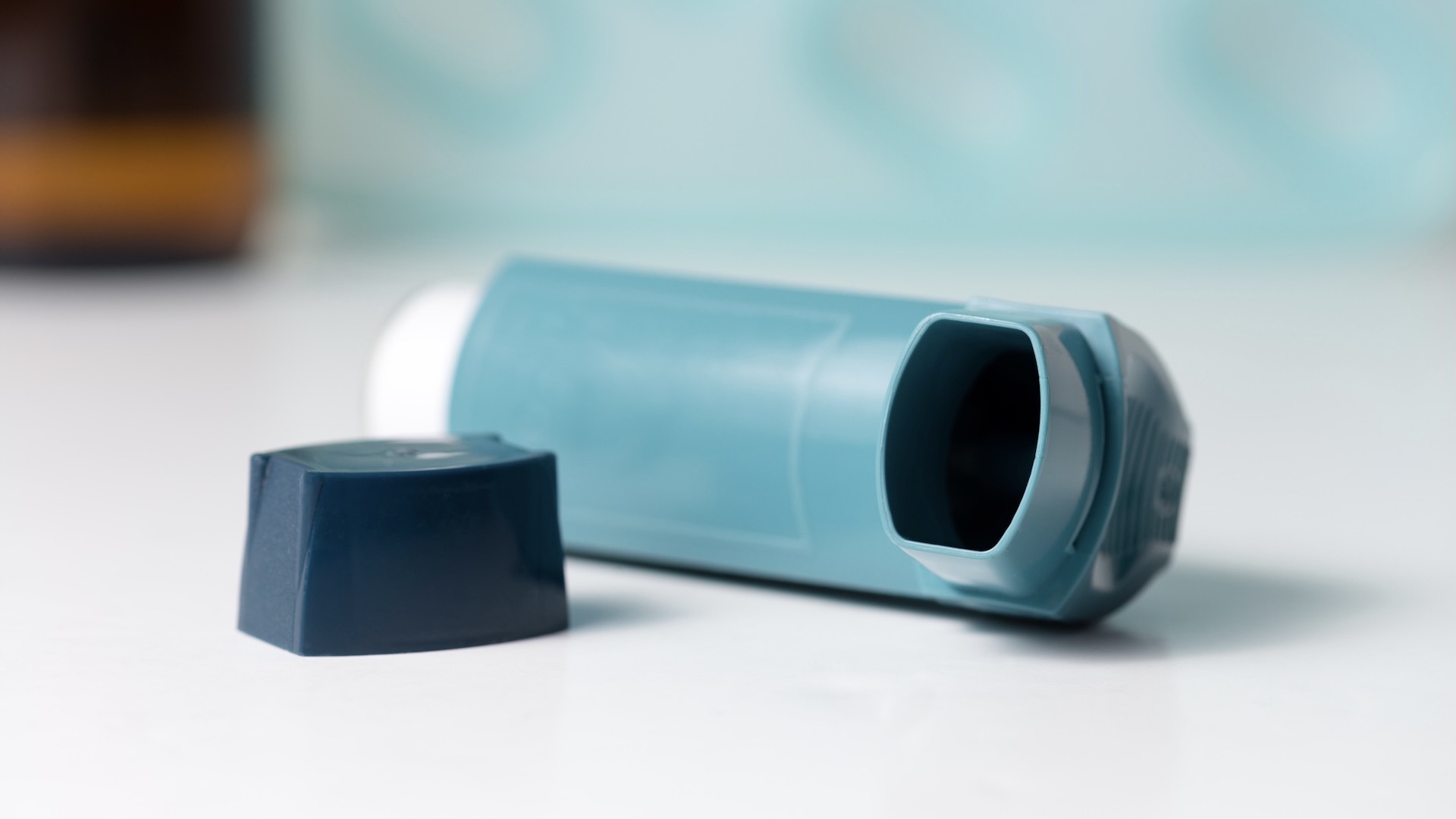Running with asthma: is exercise good for me?
We analyze the pros and cons of running with asthma, with expert medical advice

All the latest inspiration, tips and guides to help you plan your next Advnture!
You are now subscribed
Your newsletter sign-up was successful
If you have asthma, you might be wondering whether running with asthma will have negative or positive results. First, let’s understand what the condition is.
According to the UK's NHS website, asthma is a common lung condition that causes occasional breathing difficulties. It can affect people of all ages and there is no cure, although there are treatments that can help to control the symptoms.
Asthma is caused by inflammation of the tubes that carry air in and out of the lungs. The condition can cause the tubes to narrow temporarily and become sensitive.
Common asthma triggers include allergies, such a pollen or animal fur, as well as smoke, pollution and cold air. Some infections, such as colds or flu, can also cause an asthma flare up.
The main symptoms of asthma are wheezing, breathlessness, a tight chest (which may feel like a band is tightening around it), and coughing. The symptoms can sometimes become temporarily worse, which is known as an asthma attack.
Treatments for asthma include a small device called an inhaler that lets you breathe in medicines. There are several types, including a reliever inhaler and a preventer inhaler.

Running with asthma
It's worth noting that while exercising, such as running, can be a trigger for asthma, there are also benefits of exercise for people with the condition.
All the latest inspiration, tips and guides to help you plan your next Advnture!
One issue for people with asthma is the intake of cold air. When breathing, most people breathe in through their nose, which serves to warm up the air intake. But when exercising, especially more strenuous types of exercise like running, we tend to breathe in through their mouth instead. This can lead to taking large intakes of colder and drier air.
For people with asthma, the breathing in of cold, dry air causes airways to tighten and become narrower. In turn, this triggers asthma symptoms and causes people to cough and wheeze.
If you are running in places with a high pollen count or higher than normal pollution, the asthma is also more likely to be triggered.

Exercise-induced asthma
According to the Asthma and Allergy Foundation of America “airflow obstruction that occurs because of exercise is exercise-induced bronchoconstriction (EIB)”. An older term for this condition is exercise-induced asthma.
While the term seems to suggest that exercise causes asthma, this isn’t the case. Most people who have asthma will experience symptoms of EIB during exercise and for teenagers and young adults, this may be the most common cause of asthma symptoms.
Symptoms of EIB include, coughing, wheezing, chest tightness and shortness of breath.
These symptoms do not usually begin at the start of exercising, such as running, but they will come on during the exercise. The symptoms are likely to worsen some five to 10 minutes after stopping exercise.
After another 20 to 30 minutes, the symptoms should stop, but for some people it can take up to 24 hours before they feel fully recovered.
EIB can lead to some people avoiding exercise, but in the long-term this will have a negative effect on health. A strong and healthy body is one of the best defences against disease, and it is important that we all have good cardiovascular health and keep our weight in check.
Can I run if I have asthma?
The experts working with the asthma and lung health support charity Asthma + Lung state that people with asthma should ensure they use a preventer inhaler every day as prescribed. The preventer inhaler works to stop the airways from becoming too inflamed in the first place and this means the airways are less likely to react when you exercise.
A good preventer inhaler routine can also lower the risk of symptoms being triggered by pollen, pollution, or dust when you’re exercising.
Abbas Kanani, the director of Chemist Click, confirms this advice, saying: “In many cases a doctor will have instructed asthma sufferers to take a puff of their blue inhaler before starting exercising. This helps to control exercise-induced asthma.
"If there are triggers, such as pollen, cold air, pollution, which affect your asthma while you are running, you should carry your blue inhaler with you.”
In addition, it’s important to have regular health reviews with a general practitioner or asthma nurse.
Further advice is to keep a careful check for the signs that exercise is triggering your asthma, including symptoms such as breathlessness and wheezing.
The problem for some people is knowing whether it's their asthma or the actual exercise causing breathlessness. It is normal to breathe faster and more deeply when running, but if you feel wheezy, very short of breath or suffer other well-known asthma symptoms, it might mean you need to have better control of your asthma in the first place.
If exercise is the trigger, you might notice symptoms coming on after you have exercised and it could take longer to feel like you have recovered.
Studies show running is good for asthma
Physical activity can be more challenging when you have asthma, but if your symptoms are under control and managed by treatments there are many benefits. Running is a well known to be beneficial for physical health. Raising your heart rate regularly boosts lung power, increasing stamina and reducing breathlessness.
In addition, according to the charity Asthma + Lung, exercise, including running, supports our immune systems and helps people to fight colds and viruses, which can be a trigger for more than 80% of people with asthma
Exercise can also help to boost mood by releasing 'feel-good' chemicals in your brain. Studies show that if you are stressed or depressed, you’re at higher risk of asthma symptoms.

9 tips for running with asthma
1. Make sure you have the all clear from your doctor before starting to run.
2. Follow the correct treatment plan and use your inhalers as directed to keep reduce symptoms as much as possible.
3. Keep a note of when symptoms occur during exercise.
4. Avoid times when your asthma might be more likely to be triggered, such as when it's cold or when there's a high pollen count. If it's too cold outdoors, you could run on a treadmill indoors instead.
5. Always carry your inhaler with you.
6. Warm up slowly so that you are not taking in large mouthfuls of air too quickly.
7. Shower after running to wash away any potential triggers from pollen after you have run.
8. Know your own limits. There are many top runners who have asthma and they have learned how to manage it and what potential triggers there are. But every asthmatic is different and it is important to know your own limits and symptom triggers.
9. Have regular check ups with your doctor or asthma nurse to ensure your treatments are up to date and sufficient.
Running with asthma: the verdict
As you have read, there are many health benefits – both physical and mental – of running but if you have asthma it is vital that you have a good treatment routine and regular health checks so that you have much less chance of exercise triggering the symptoms of asthma, such as wheezing and breathlessness.
Always speak to your doctor if you have an health concerns before starting a running training plan.

Fiona Russell is a widely published adventure journalist and blogger, better known as Fiona Outdoors. She is based in Scotland and is an all-round outdoors enthusiast with favorite activities including trail running, mountain walking, mountain biking, road cycling, triathlon and skiing (both downhill and backcountry). Aside from her own adventures, Fiona's biggest aim is to inspire others to enjoy getting outside and exploring, especially through her writing. She is also rarely seen without a running skort! Find out more at Fiona Outdoors.
